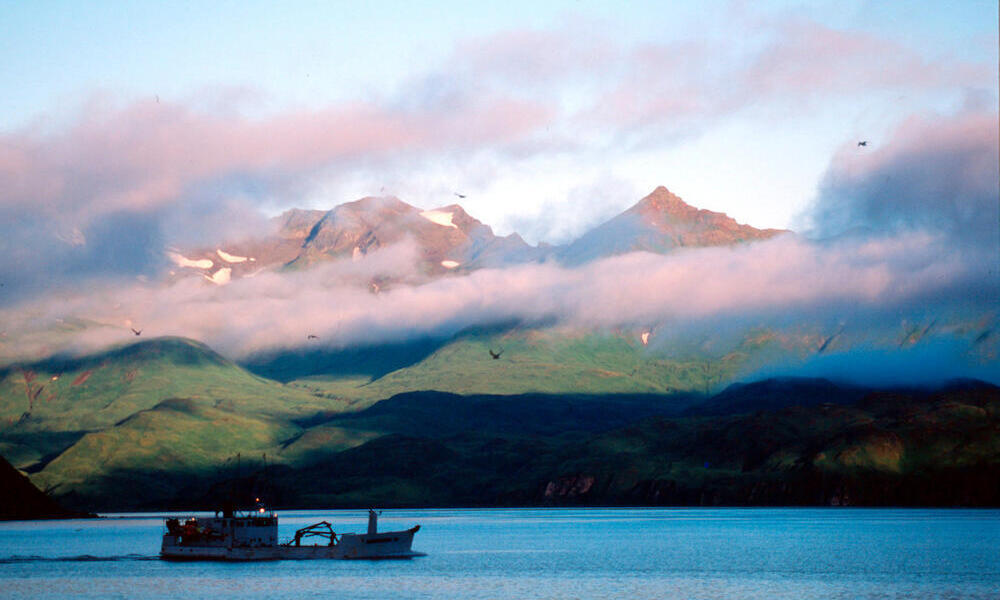The Arctic is an extraordinary place, characterized by vast intact land- and seascapes. Some of the richest and roughest seas in the world can be found in the Arctic, as well as an extreme and variable climate, diverse human cultures whose traditions are closely tied to the bounty of the land and sea, and abundant wildlife.
Today, the Arctic is facing unprecedented challenges with climate change and other stressors impacting the polar regions three to five times faster than they impact the rest of the world. Global warming is causing the rapid loss of polar sea ice and threatening dramatic local loss of critical biodiversity and ecosystems essential not just to well-functioning global planetary systems but also to the Indigenous Arctic peoples that have been supported by them for thousands of years.
Accelerated polar sea ice melting is also opening the Arctic to activities that have been limited in the past. New expanses of open water and longer open water seasons are creating potential for expanded offshore oil and gas development, mineral exploration, fisheries, and shipping.
Immediate, coordinated action is needed to safeguard the biodiversity of the Arctic for future Arctic and global generations. The Arctic Program vision is of healthy Arctic ecosystems that support the cultural, social, and economic needs of the people living there, and that protect the diversity of Arctic life.
The WWF-US Arctic Program framework sits at the nexus of WWF’s two pillars: area-based conservation and whole planet solutions. Our program priorities and goals are focused in three critical Arctic seascapes—Bristol Bay, the Arctic Ocean coast, and the Bering Strait.
